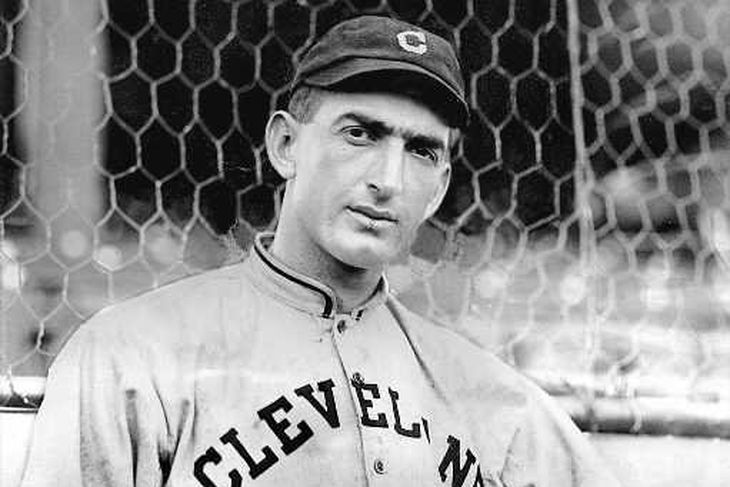Shoeless Joe Jackson (Joseph Jefferson Jackson)

Shoeless Joe Jackson
Shoeless Joe Jackson is best known today for being the most recognizable of the eight Chicago White Sox players who were banned forever from Major League baseball for his role in the 1919 “Black Sox” Scandal. Born in Greenville, South Carolina, in 1902 he became a cotton textile worker with Brandon Mills, sweeping the floors where his father and brother worked. He soon joined the company baseball team in what was called the Textile League. A natural player, by 1904 be had become one of its best-known players. In 1908 he left the mills to become a professional baseball player with the Greenville Spinners, and it was during his time with the team that he obtained his nickname in 1909 when he removed his new, tight-fitting shoes (which were causing blisters) to run around the bases in his socks during a game. In his first season, he batted .350, and was clearly recognized as one of the best players in his new league. In 1910, the Philadelphia Athletics bought his contract, and the next year, he was traded to the Cleveland Indians. In 1915, he moved to the Chicago White Sox. In 1919, he discovered that seven players had gotten together to throw the World Series, and Jackson was offered $20,000 to join them. Jackson refused, but the gamblers used his name as being in on the fix to lure other bettors. When he played, he turned in a blemish-free performance, scoring five runs and driving in six more. His game average was .375 and he had 12 hits during the World Series, setting a new record for hits. He also fielded 30 balls without an error. When the scandal was revealed, a grand jury was held in 1920, and he was called before it. Owner Charles Comiskey denied knowledge of the fix (to do so would tarnish his reputation, since he did nothing to stop it), and Joe Jackson was indicted. Although the resulting trial jury found him innocent of taking a bribe, the baseball commissioner, Judge Kennesaw Mountain Landis, banned all of the Black Sox players from professional baseball for life. After the 1919 ban on baseball, Jackson returned to Greenville, South Carolina, where he became a successful shopkeeper, running a dry cleaning store and later a liquor store, until his death in 1951 of a heart attack. Although banned from professional baseball, he continued to play ball for free, for local teams, until 1933, when he stopped due to age. According to an interview given by him, the famous question asked him by a kid after the Grand Jury hearing “Say it ain’t so, Joe” was never spoken, and was apparently made up by a newspaper reporter.
Born
- July, 16, 1887
- Pickens County, South Carolina
Died
- December, 05, 1951
- Greenville, South Carolina
Cause of Death
- Heart Attack
Cemetery
- Woodlawn Memorial Park
- Greenville, South Carolina


